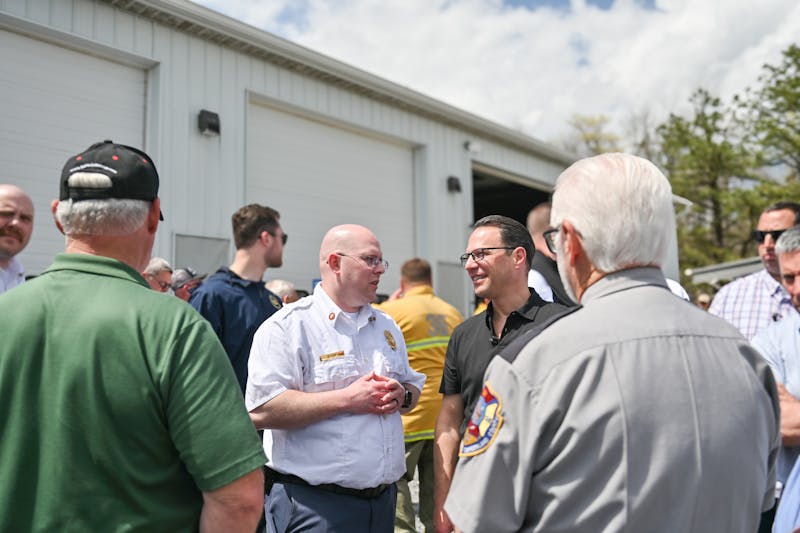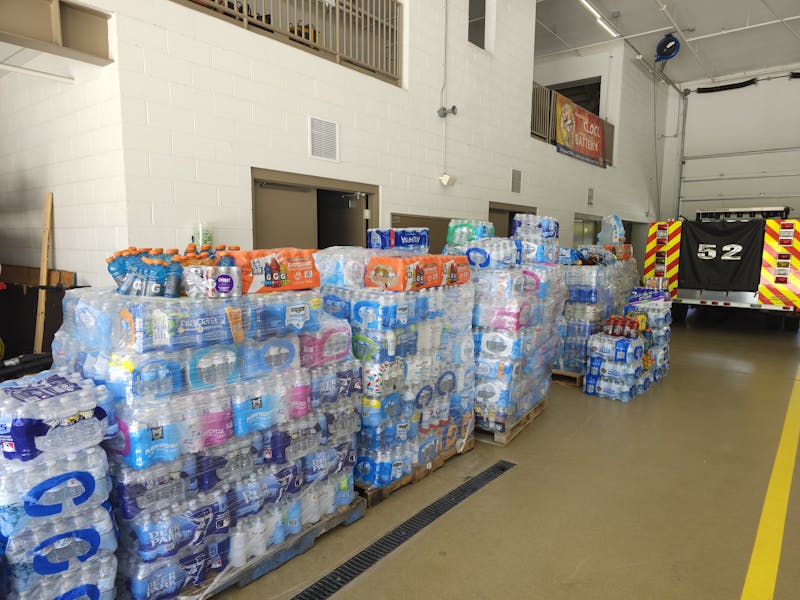East versus West.
Capitalism versus communism.
The space race and the nuclear arms race.
To many, these phrases are reminiscent of the Cold War — an age-old power struggle between world superpowers that is commonly believed to have ended with the fall of the Soviet Union in 1991.
More than two decades later and a year after the crisis in Ukraine, the term Cold War is making headlines around the world. Tensions are slowly, but surely, mounting between Russia and the North Atlantic Treaty Organization (NATO), which includes 28 member nations.
“Is Russia arming up for a new Cold War?” reads one headline of a CNN video, while a Russia Today (RT) article states NATO forces are practicing war games, some of which were just more than 300 yards from the Russian border.
The U.S. Army 2nd Cavalry Regiment’s “Stryker” unit made its way through Estonia and planned to end up in Germany, reported Ukraine Today (UT).
The 1,100-mile trek is being reduced to a sort of parading military convoy with the intent on flexing military muscle in the region. The drill is part of a larger exercise dubbed “Operation Atlantic Resolve.”
“The United States is demonstrating its continued commitment to collective security through a series of actions designed to reassure NATO allies and partners of America’s dedication to enduring peace and stability in the region, in light of the Russian intervention in Ukraine,” the U.S. Defense Department says on its website.
Russia launched its own military drill last week, which included approximately 38,000 soldiers, 110 aircraft, 41 ships and 15 submarines of the Northern Fleet, reported CNN.
RT reported military drills took place not just with the Northern Fleet, but across Russia, involving an estimated 76,000 troops.
Just last month, the Royal Air Force of the United Kingdom scrambled jet fighters to escort Russian bombers spotted from Cornwall, England, according to the BBC.
Lithuania is just one of several Eastern European nations that is planning to implement conscription in response to military actions taken by Russia that include incidents involving Ukraine and military drills, according to Defense News.
Government officials in Lithuania expect to draft at least 3,000 men every year, for the next five years.
The Czech Republic is planning to reinstate the draft as well for both men and women.
“We cannot ignore the current threats,” Martin Stropnicky, Czech Defense Minister said. “The example of Ukraine shows that conflicts can spread quickly and take place relatively close [to the Czech Republic].”
Decisions to enact conscriptions started after Russian President Vladimir Putin acknowledged that Russia had the intent to annex Crimea, Ukraine’s former most southern region, nearly a month before the people of Crimea voted to join Russia, according to BBC.
The recent show of force between NATO and Russia can be traced back to November 2013, when the Ukrainian government derailed promising plans to join the European Union (EU). The East versus West issue erupted from there.
The Ukrainian president at the time fled to Russia, exemplifying the fact the country was divided between people who gravitated toward the EU and those who were under the Russian sphere of influence.
As the country collapsed into a state of civil war between pro-Russian fighters and soldiers of the new government, Russia and NATO increased their political and military presence in the region — a scene reminiscent of the Cold War.
In a move that only intensified political tensions, Russian officials invited Kim Jong Un, leader of North Korea and enemy of the U.S., to attend the 70th anniversary of Victory Day, the day that marks victory over Nazi Germany. Though an official announcement has not yet been made, North Korea has unofficially agreed to attend, according to CNN.
It is not clear if military drills are expected to continue for a long period of time, what will happen with the state of Ukraine or if the relationship between Russia and NATO members is to improve or to deteriorate.
While the threat of imminent nuclear attack is not present like in the Cold War, years of diplomatic progress are left to the wayside.




The Slate welcomes thoughtful discussion on all of our stories, but please keep comments civil and on-topic. Read our full guidelines here.